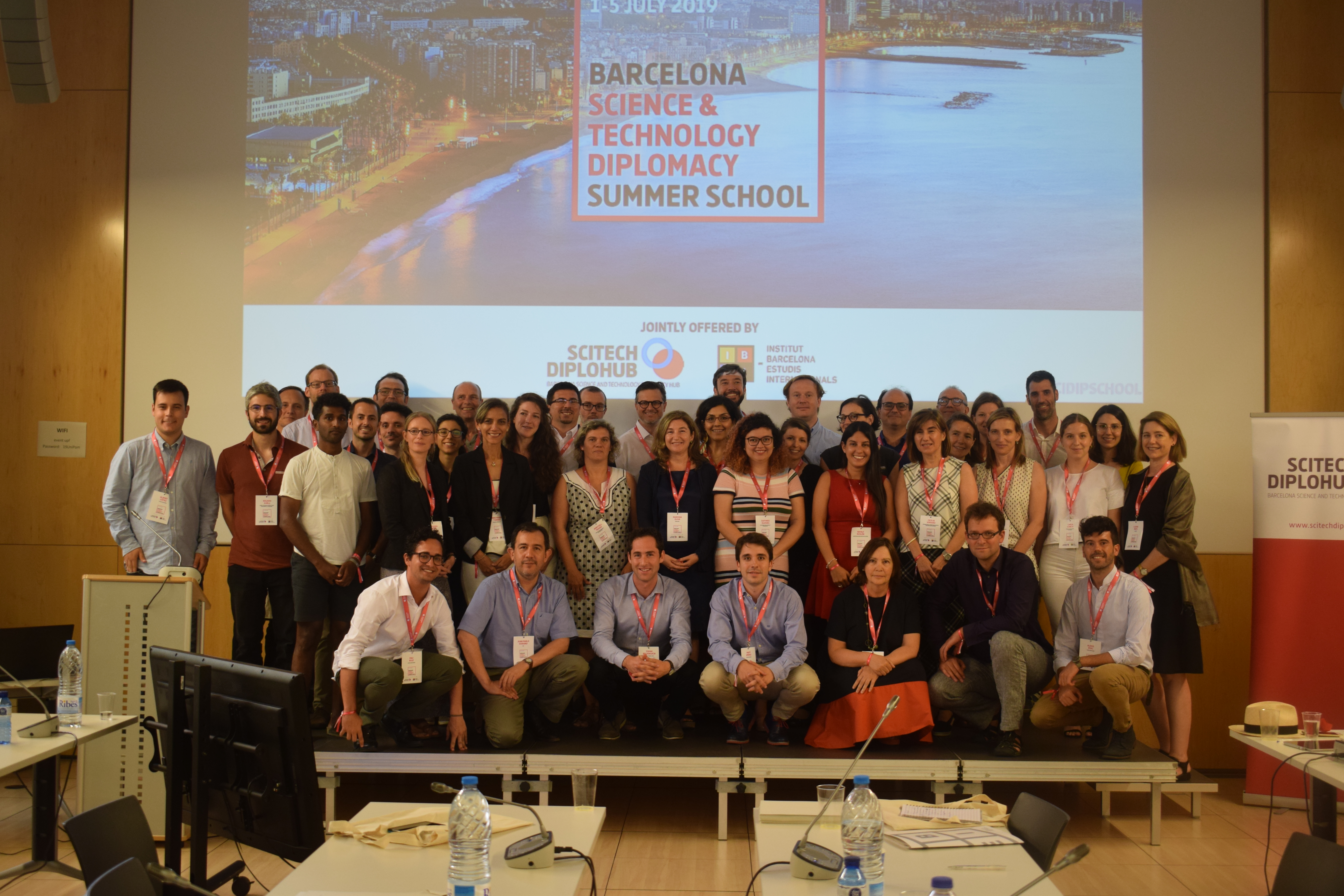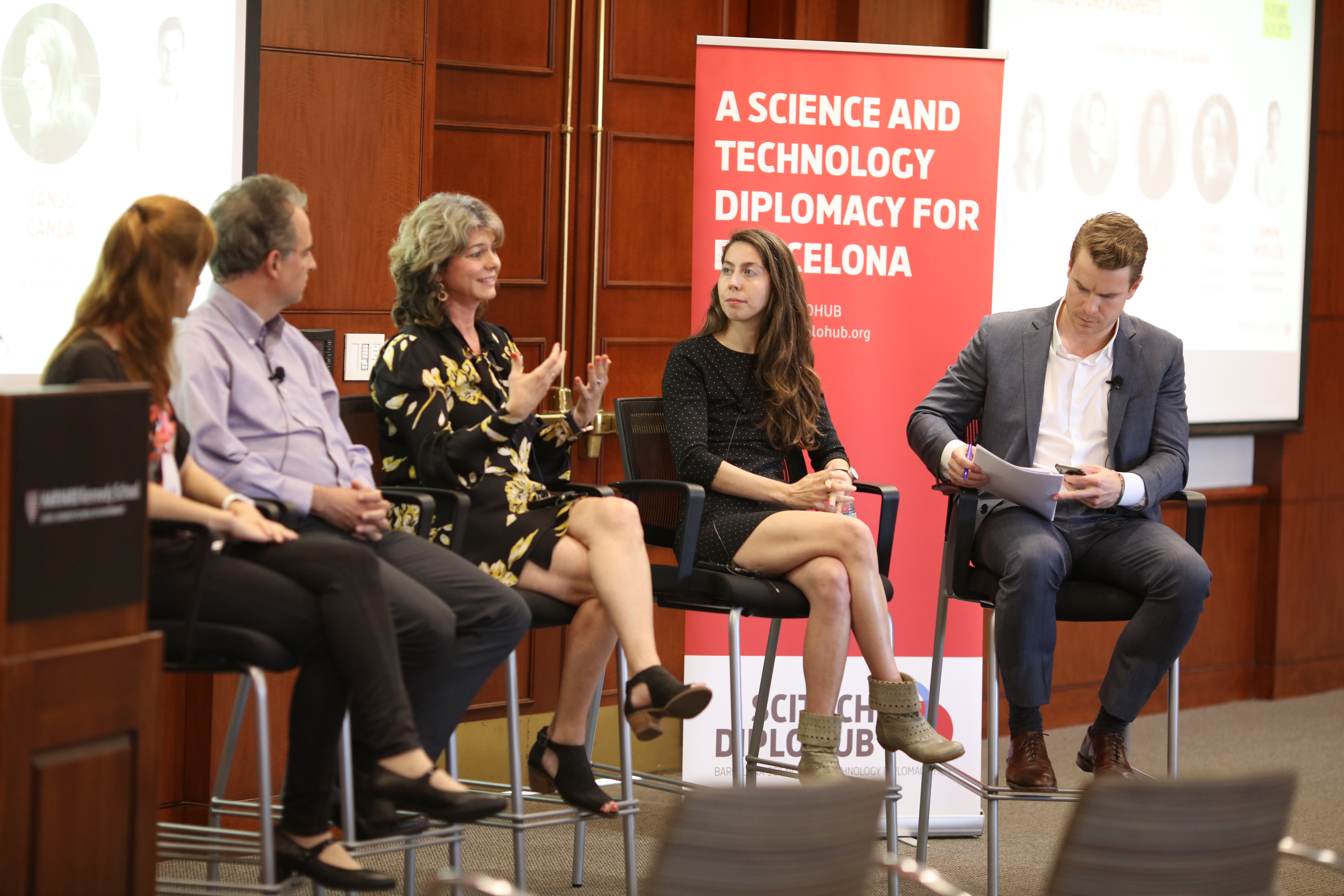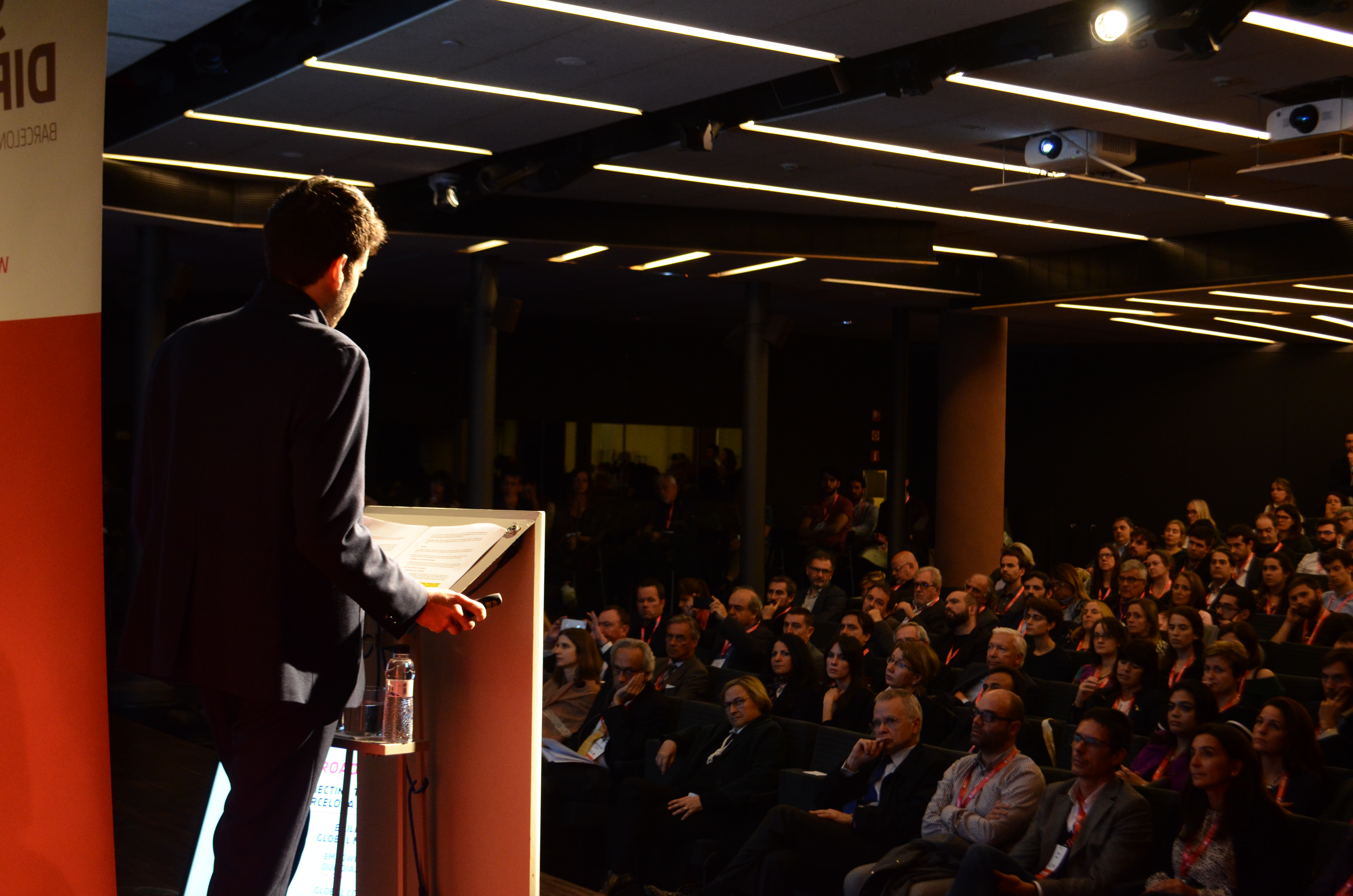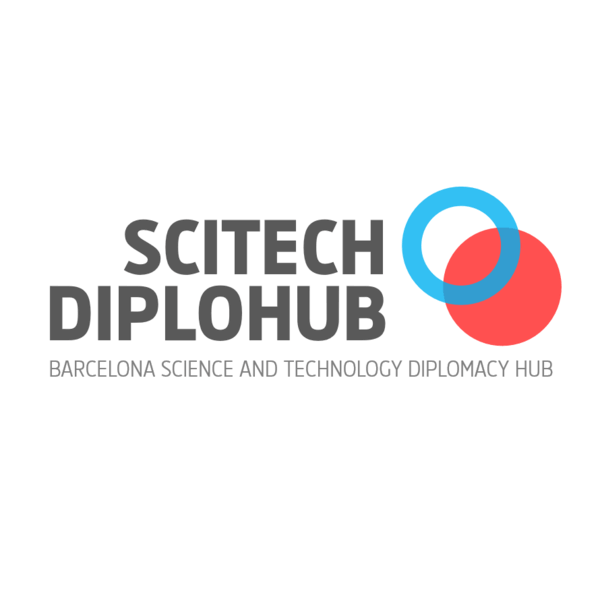
 SciTech DiploHub Summer School 2019
SciTech DiploHub Summer School 2019 Barcelona Innovation Days: Boston 2019
Barcelona Innovation Days: Boston 2019 Barcelona Conference on Science Diplomacy
Barcelona Conference on Science Diplomacy
City
Barcelona (ciudad)
Main actors
City Government, Regional Government, Private Sector, NGO / Philanthropy, Research Institutes / Universities
Project area
Inner City
Duration
Ongoing since 2018
Implementing a Science and Technology Diplomacy Strategy.
SciTech DiploHub is a pioneering non-profit, public-private partnership supported by leading research centres, universities, non-profits, start-ups, corporations and public institutions that positions Barcelona as a global lab in science diplomacy SciTech DiploHub’s mandate is to elevate the role of science, technology and cities in foreign policies and position Barcelona as an influential player on the global stage by representing its knowledge and innovation ecosystem worldwide.
Daunting global challenges such as climate change, food and water scarcity and increasing digitalization, require both the scientific community and international organisations to build meaningful long-term collaborations. Scientific values of rationality, transparency and universality can help underpin better global governance and build trust between nations and societies. Additionally, cities emerge as testing grounds for scientific change and can attract highly qualified people to work in the field while simultaneously becoming key geopolitical actors.
Science diplomacy refers to the use of scientific, technological and academic collaborations among countries, regions and societies to address common issues and to build sound international partnerships. Science diplomacy is not new, but it is more important than ever due to the scientific dimension of the current global challenges. No nation-state can tackle any of these challenges alone, thus their foreign policy needs to integrate new tools for a world with growing scientific and technical complexity.
The initiative was launched in 2018 in Barcelona as a response to both the expanding role of science and technology in the global arena and the emergence of cities as geopolitical actors. SciTech DiploHub positions itself as the primary interface between Barcelona’s knowledge and innovation ecosystem, policymakers, the city’s international organisations and leads the new wave of city-led science diplomacy.
The objectives of the Barcelona SciTech DiploHub are:
- To consolidate Barcelona as an innovation capital, ready to meet the United Nations Sustainable Development Goals (SDGs) through science and technology.
- To position the city as an influential geopolitical actor and reliable partner through science diplomacy.
- To promote a sound and inclusive multi-stakeholder dialogue through partnerships among the scientific community, start-ups, policymakers, NGOs, the diplomatic corps, the private sector and civil society.
- To empower a global network of science and technology experts from Barcelona to foster international cooperation, showcase its scientific strengths abroad and help to better understand and interpret key global issues.
- To elevate the role of science, technology and cities in foreign policy and harness scientific expertise and innovation in support of an evidence-based local and foreign policy.
The projects that are funded and delivered as part of Barcelona’s science diplomacy strategy include:
The Barcelona Science and Technology Diplomatic Circle, a platform developed
with the Barcelona City Council that engages in periodic visits and encounters the 100+ diplomatic missions and international organizations serving Barcelona and leaders representing academia, government and private sector which shape the innovation ecosystem of Barcelona. Heads of missions, councillors, attachés and officers dealing with science, technology and innovation from consulates, embassies and international organisations have the chance to connect with Barcelona’s science and tech scene, exchange best practices and report back to their countries.
Barcelona Alumni, the global network of high achieving scientists, technology experts and innovation leaders trained in Barcelona and based abroad. We identify, bring together and empower an international community of professionals educated in the city’s knowledge ecosystem. This network fosters international cooperation showcases Barcelona’s scientific strengths and helps us to better understand and interpret key global issues.
The Barcelona Innovation Days, events held at the world’s leading innovation hubs and large cities where Barcelona Alumni are living. Cities include Boston, Paris, London, Shanghai and San Francisco. They bring together the most prominent stakeholders from academia, start-ups, industry, and public institutions to strengthen relationships with representatives of Barcelona’s innovation ecosystem.
Capacity building in city-led science and technology diplomacy. Together with IBEI, a leading academic and research institution on global affairs in Barcelona, SciTech DiploHub organizes the Science and Technology Diplomacy Summer School. The school provides training for the next cohort of leaders in a field that is increasingly essential to tackle global challenges.
The Global Policy Lab, an independent and apolitical interface where scientific expertise and innovation can be harnessed in support of public policy. By involving scientific experts, representatives of academic and research institutions, the private sector, civil society groups, NGOs and other international stakeholders, SciTech DiploHub helps exploring how science and technology can help address global challenges and feed into policy formulation by bringing information and knowledge back to decision makers.
SciTech DiploHub was launched with the support of over two hundred world-class professionals, including university deans, research centre directors, former ministers and mayors, CEOs of leading start-ups, directors of think tanks, business organizations, and the city’s best scientists, engineers and international relations professionals both at home and abroad.
SciTech DiploHub’s programmes are financially supported by the leading organizations of Barcelona's science, technology and international relations ecosystem including:
- Barcelona City Council
- Barcelona Supercomputing Center (BSC-CNS)
- Vall d’Hebron Research Institute (VHIR)
- Barcelona Tech City
- Biocat
- ACCIÓ-Agency for Business Competitiveness
- Fundació Catalunya-La Pedrera
- Fundació Banc Sabadell
- Itnig
- Catalan Foundation for Research and Innovation (FCRI)
- Advisory Council for Sustainable Development of Catalonia (CADS)
SciTech DiploHub is bringing together diplomatic missions and the city’s innovation ecosystem to enhance collaborative projects; empowering the global diaspora educated in Barcelona; offering first class capacity-building in science diplomacy and delivering policy advice, working as a think tank in support of evidence-based policy.
Through city-led science diplomacy, Barcelona has become an open lab for global urban solutions.
The main challenge to overcome through the execution of this project was that the City of Barcelona, was unable to mobilize its scientific and technological community to tackle the SDGs. Another barrier was the lack of alignment between the wide range of stakeholders comprising Barcelona's ST&I ecosystem towards a shared global strategy.
It is feasible to transfer scientific knowledge to urban policy and city diplomacy through public-private smart governance. Through a novel and innovative approach, SciTech DiploHub is positioning the city as an influential geopolitical actor ready to meet the SDGs, thus paving the way for other global cities committed to developing their own science and technology diplomacy strategies.
Martí Jiménez Mausbach, "Conectando nuestra diáspora de talento al mundo", El món de demà, April 5, 2019,
https://elmondedema.cat/es/conectando-nuestra-diaspora-de-talento-al-mundo/
Alexis Roig, "La geopolítica de la ciencia y las ciudades", El món de demà, April 5, 2019,
https://elmondedema.cat/es/la-geopolitica-de-la-ciencia-y-las-ciudades/
External links / documents
On Map
The Map will be displayed after accepting cookie policy
